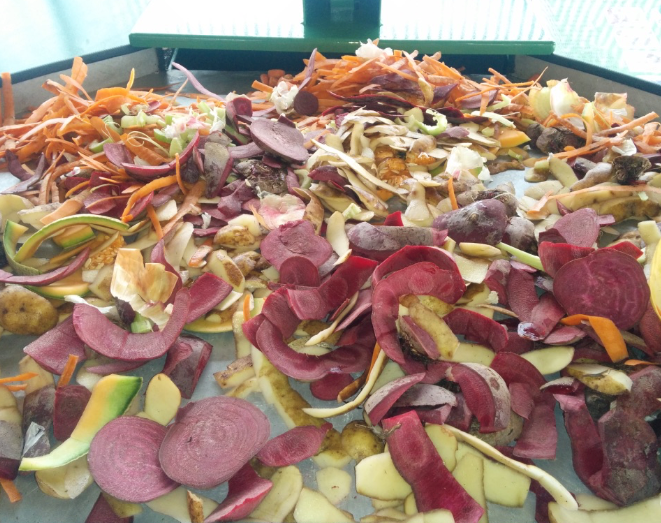To compost or not to compost. That is no longer the question. The growing trend for many municipalities in BC is to offer localized composting programs, and this makes good sense for the earth and for taxes.
Forty per cent of household waste is potential food for the soil—not garbage after all—so we might as well feed the earth rather than the landfill. Waste also has an incredible carbon footprint when transported long distances as ours is. Not only that, but when your banana peel gets buried in the earth and compacted, as in landfills, it goes anaerobic and creates methane gas—a greenhouse gas over 25 times more potent than CO2.
Most of us are convinced that composting is a good idea, but how can you make it work for your household? Storage of compost is often felt as a roadblock, and this is no surprise as organics create odour and attract flies and other larger critters. Fortunately, many of these can be easily managed.
When collecting kitchen scraps, especially during the warm summer months, the smaller the lidded container the better. Yes, this means more trips to the composter in your yard, or the depot drop-off in town, but also less chance of stink and flies. Ice cream buckets are a great size for most countertops.
Since plastic of any kind (including compostable plastic) is not accepted in our local composting program, it’s good to be in the habit of doing without it in your kitchen collection bin. Instead, you can line your bin with newspaper or paper napkins to absorb much of the liquid. It will also prevent materials from sticking as much at the bottom. Giving the bin a quick rinse and occasional swipe with a vinegar-infused cloth will help, too. Any particularly pungent items could be popped in a paper bag in the freezer to reduce odour. Store any larger storage containers full of compostables in a locked shed, garage or basement rather than outside where they are a wildlife attractant.
Those of us who are not able to compost in our backyards, still have local options. Kitchen scraps can be dropped off free of charge at the Town Centre Recycling Depot and staff are available to help unload your bucket into the bin. Loads larger than 20lbs that include yard waste can be dropped off at Sunshine Disposal on Franklin Avenue from 10 am to 4 pm on Wednesdays and Saturdays.
Contact your local compost education team with any questions: info@letstalktrash.ca.
Let’s Talk Trash is qathet Regional District’s waste-reduction education program.



